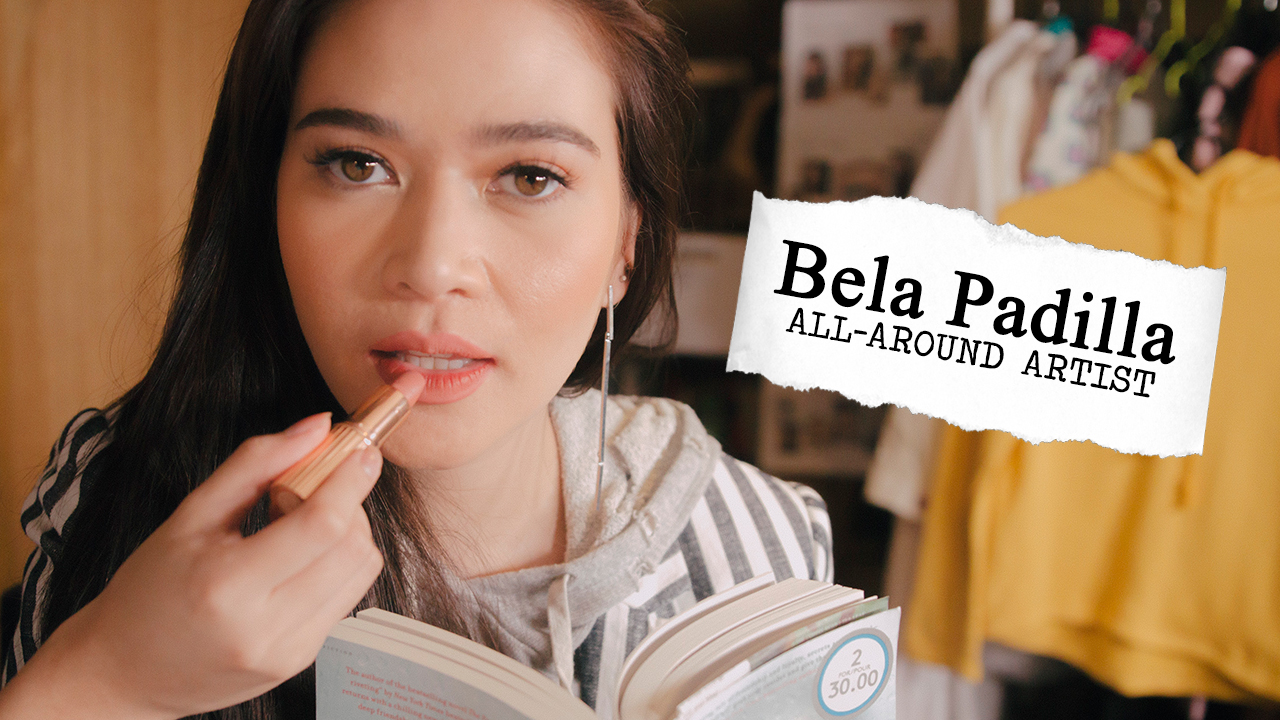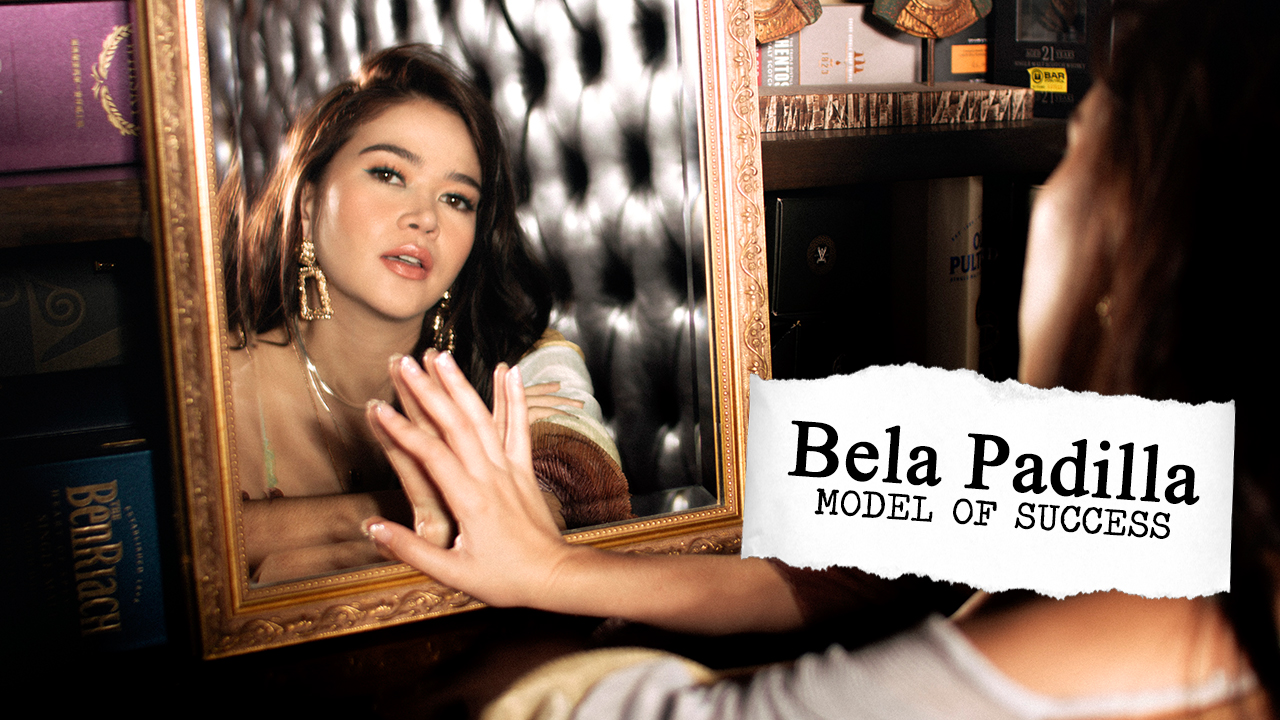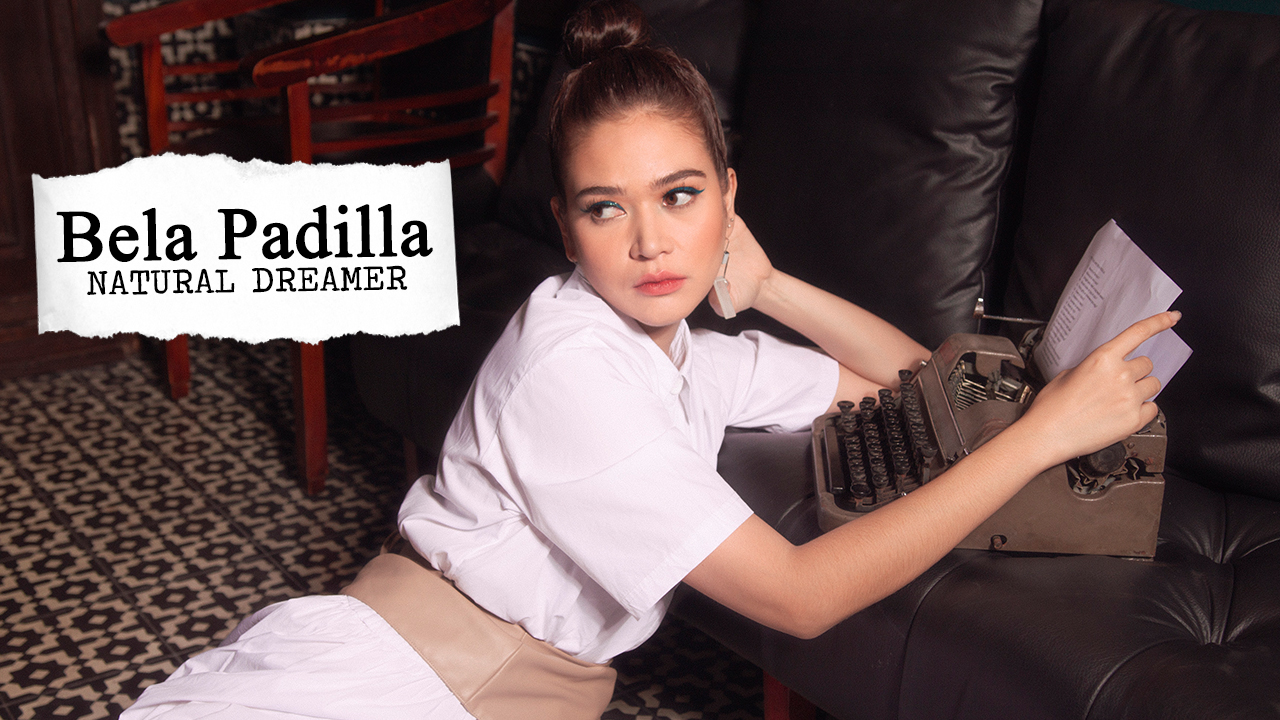
You’ve read about Bela Padilla as an Actress in our first cover story, and you’ve read about her as a Model in last week’s feature. But perhaps my favorite interview of the four layers we’ve unraveled (and will continue to unravel) about our November 2018 #CalyxtaGirl is Bela Padilla as a Writer.
I had so many questions that I wanted to ask her—questions that I was incredibly intrigued to hear the answers to, because I felt like there were so many insights that I, as a fellow writer, would also learn from.
This week, Bela shares where she gets her inspiration, how she overcomes writer’s block, her process in developing her characters, and her unique writing style. Continue reading our interview below.
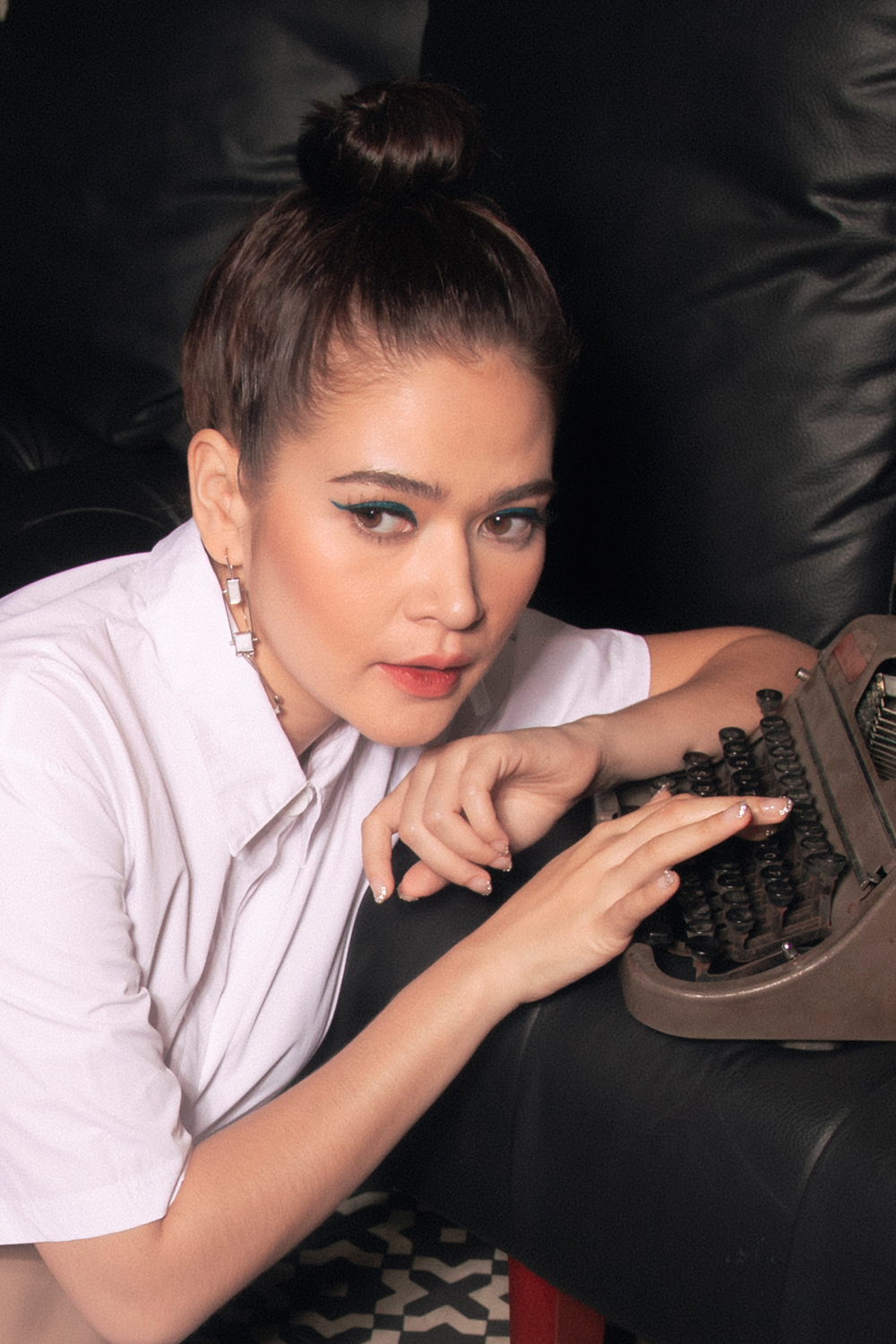
Writers tend to find inspirations in the most mundane or random things. Where do you find yours in writing your screenplays?
That is actually very accurate. It is really in the most unexpected situations where you get inspiration from. There was a script that we came up with, a concept that I came up with called “Luck at First Sight” which eventually materialized into a movie with Jericho Rosales. We thought of it because on the radio, they kept talking about love at first sight, and I was thinking what if it was luck that brought two people together? It was a play of words, and from the title, we created the film. For Camp Sawi, it was a question—I was talking to someone and the question was, “What if there was a rehab for the brokenhearted?” and we came up with Camp Sawi. For Last Night, which was a movie that came out last year with Toni and Piolo, I imagined, because there was a time when we always taped around Jones Bridge, and I was thinking, what would I feel like if I saw someone jump off Jones Bridge? And how would I help? And I don’t know why—I think it was because I was about to die in Probinsyano that I ended up making Toni’s character dead to begin with. Sometimes, it also has something to do with what I’m going through at the moment. I currently just finished a new script. It’s coming out next year, also under Star Cinema. And this one is Larger Than Life, because that’s what they asked for, so that’s commissioned work. But the scenes I put in it, I noticed are scenes that I went through in real life because I’ve been single for quite a while now—so most of the dates that I put into the movie are my ideal dates or dates I wish I went on.
Have you ever experienced writer’s block? If so, how did you overcome it?
I have this weird thing where even if they tell me to write the script three months ahead, I’ll write it the day before. I cannot write when it’s not close to the deadline. I need to write it the day before. That’s when everything comes out. I’ll even pretend to bring my laptop if I’m going to travel. It’s with me while traveling, like on the plane. I have to carry it around through all the gates, and I end up not writing a single word. I’ll just watch all the in-flight films, which is just really such a waste of time but yeah. I tend to write the day before. I don’t even try to fight it anymore. I know now that I can’t write aside from the day before. Anything they ask for—sequence treatment, character development, or a character background or whatever, or a full script—I write the day before. So I’m in deep s— when the script is long because I have to be writing from morning until the next morning. So there. I went to classes with Sir Ricky Lee, and he said writer’s block is real. But you have to train yourself every day to keep on writing, even if it’s just five sequences, even if you don’t want to, even if it’s really bad sequences—at least you wrote something, so it turns into a writing exercise, which makes sense. And before, I would experience writer’s block in the middle of the script, because that tends to get boring—you have a nice intro, you have a really solid ending, but what do you put in the middle? That used to be a struggle for me, and I didn’t have formal training before. And I realized—why do I keep thinking of what I want to put? I should start thinking of what I want to watch. Because at the end of the day, the reason why I’m writing is because I’m looking for films that aren’t out yet. I put myself into the perspective of the audience so that’s one of the easiest cures that I could recommend. “What do you want to watch?“
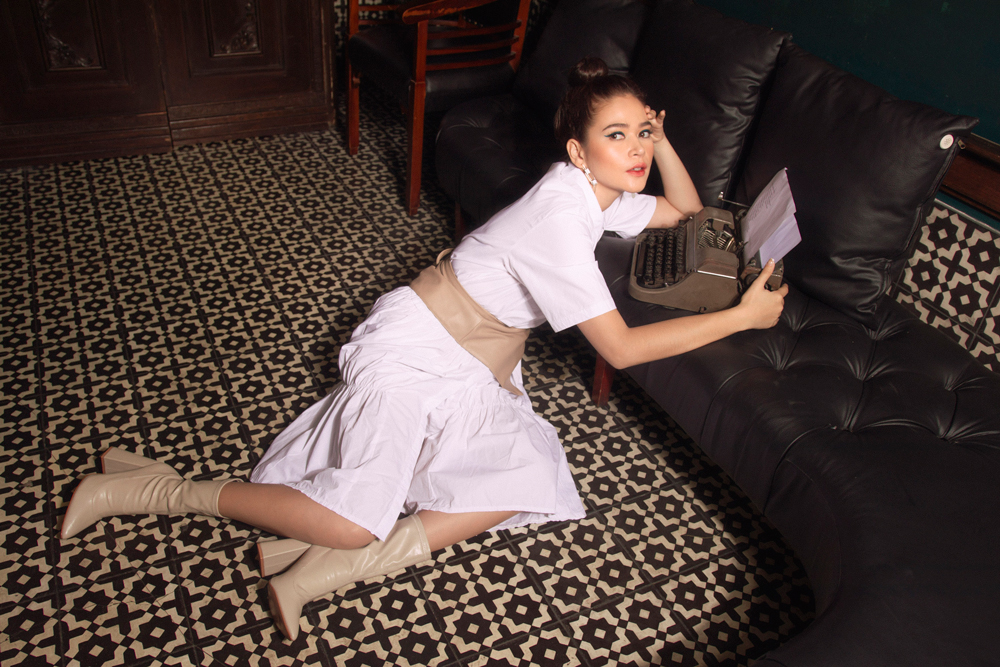
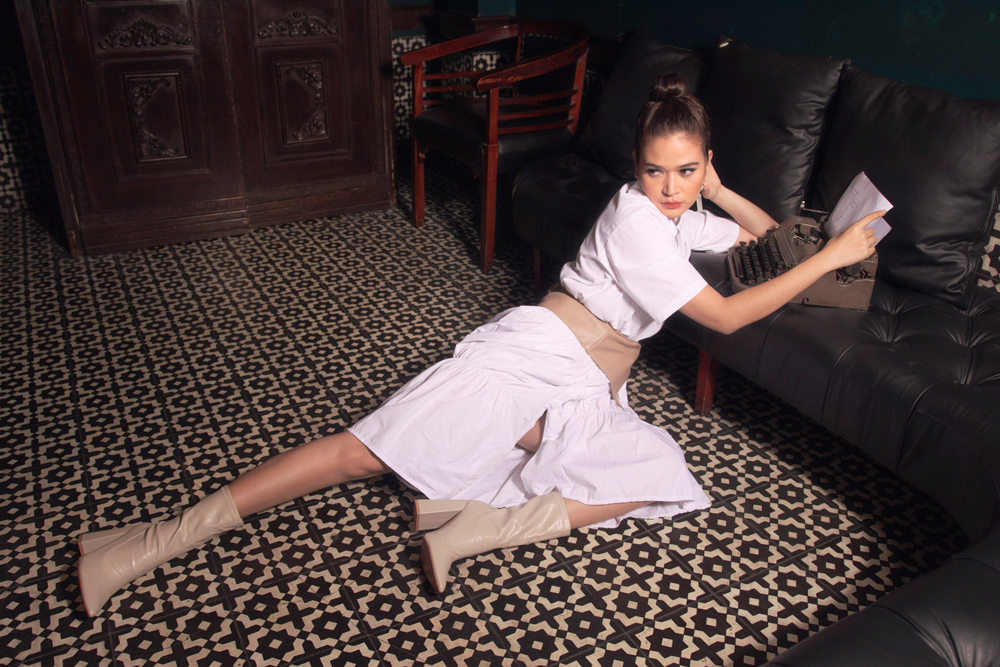
In terms of developing your characters-how do you develop them? How do you think about what they would be eating for breakfast the next day or something?
I like watching real people. It’s so weird because on most days, I’m alone. I mean, I have my PA with me in my house, but I’m really just alone. I go to the mall alone, I eat alone—I don’t like having my assistant with me whenever I go out because I feel like that’s such a diva move to have your PA carry your bag or whatever. It’s just stupid because I can do it on my own. But I prefer being alone. Like this New Year, I went to Enchanted Kingdom alone, I rode the rides alone, and I got to talk to a lot of people. I like talking to people, so from there, like you guys, you can be characters in a movie. I think for writers, you put yourself out there—like really, really watch the world because that’s what you’re writing about. You can’t keep on researching through your phone. You have to go out and actually feel the wind when you write about the wind, you know? The more you expose yourself, the more colorful your imaginary worlds can be. And there, I think it’s a plus that I like talking to people. When I travel, that’s basically all I do—from the flight attendants to people I’ll meet. I love talking to people in the airport. They’re so interesting. Always different stories. I pretend to be different people when I’m walking around. Today, I’m a student. Obviously, this is an airport where everyone is just strangers. I can pretend to be traveling with my dad even if I’m just alone, or I can pretend that my husband checked-in ahead of me and I’m just following. (laughs) Stuff like that. I play around. I love doing this because I get bored a lot. (laughs) It’s also a way to be safe when I’m traveling alone. As a woman, I pretend like, “Yeah, my dad’s waiting for me outside.” Even if there’s no one outside.
Of the characters you’ve written, who did you get the most attached to? And why?
That’s hard. I think all writers will be attached to all their characters because I think, I’m not saying it’s true, but I think every character that writers write reflects a piece of them, you know? Your frustrations, you get to say it out in your script. Your dreams, you get to write and incorporate into your scenes. So I think all the characters are special. But I think one character that I played out that I felt like this girl’s special, Bridgette from Camp Sawi, because she was going through such raw pain and I came up with the character, but Direk Irene Villamor wrote the full script. It was my concept, but we had someone else write it. My characterization for Bridgette was meant for Andi Eigenmann. I wanted her to play it because Andi’s very subtle but at the same time, a very effective dramatic actress, so I wanted Andi to play her. I didn’t think I was going to be part of Camp Sawi, because I was still doing something else, and I was like, “I want to watch Andi play this girl.” And ultimately, I ended up getting to play her, and Andi ended up with a different character, which she also did very well. So yeah, Bridgette.
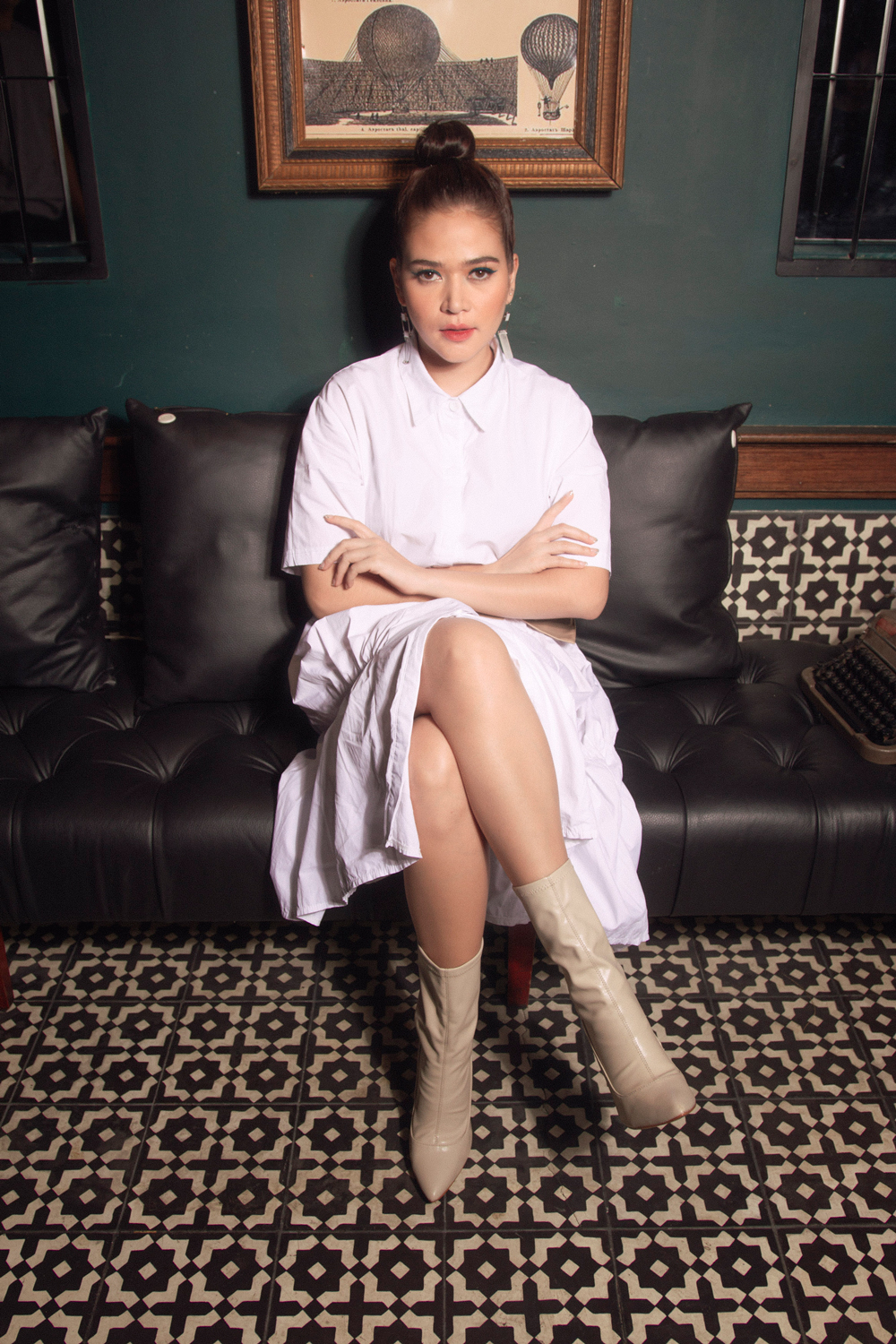
What’s your writing style and do you develop the characters first or the story line first? Do you write in chronological order or different scenes first that you piece together? And do you leave a story behind and you just come back to it when you have more ideas for it?
I have more stories that I’ve left behind than I’ve actually written completely. Only because when I continue to write them, I suddenly go through something else in my life and I feel like it’s not important anymore, the script that I was writing. There’s a script that I’ve been writing for a year now, that’s too special, that I can’t continue writing it. I feel like I’m not worthy for the story. But I will hopefully get to a point where I feel worthy enough to tell that story. My writing style—I always go straight to full script. When I’m required to, I’ll go for storyline first and then fill it in with lines. But I would like to go full script first. There’s one person who described me before, and said that when you read my script, you could read them talking inside your head. And that makes complete sense because when you’re writing conversations, you don’t really notice that you’re typing anymore. You’re literally just listening in on their conversation. I think that’s also one of the joys of writing. Being able to watch other people’s worlds, and I mean, that happens when we watch the movies already. But before it comes out, we get to experience that firsthand, so I feel like I was let in on a secret and I get to share it with you guys if you’d watch it. I do write chronologically. I don’t like going back. I’ll write it once, go through it for typos. More or less, when I do go back, there are at least 10 more scenes that I will change. Because one movie script right now is around 60 to 75 sequences, so there are about 5 to 10 that I’ll revise or add.
Don’t forget to check out Bela’s previous cover stories, and to shop and read all things beauty on Calyxta!
Editorial Assistant: Maan Fernandez
Art Direction: Margaux Cortez
Video: Richard Webb
Photo: Kitkat Pajaro
Makeup: Denise Ochoa
Hair: Kiel Otilla
Styling: Jan Aranilla
Special Thanks to: The Belle & Dragon and Mandalay




